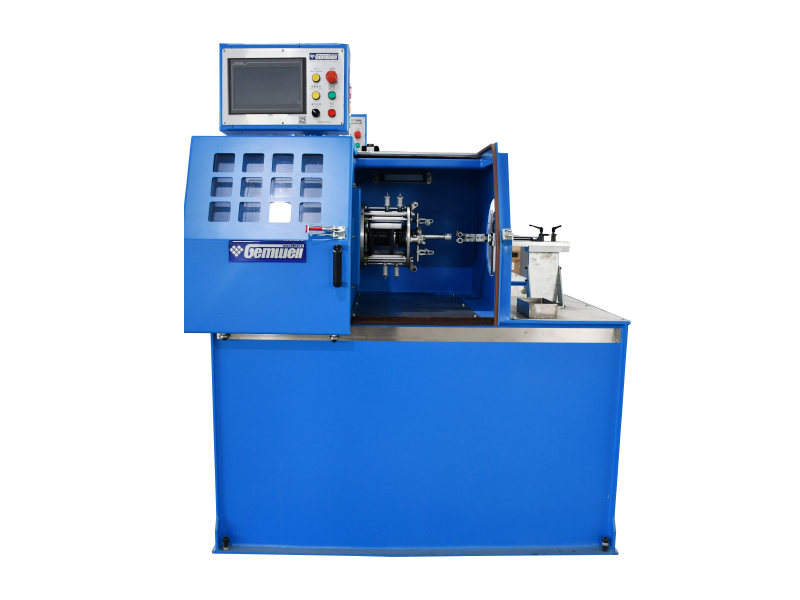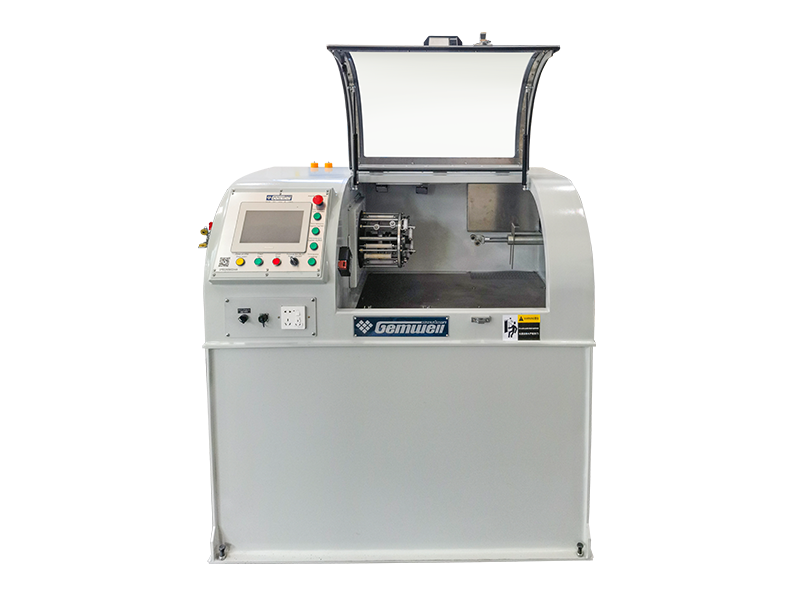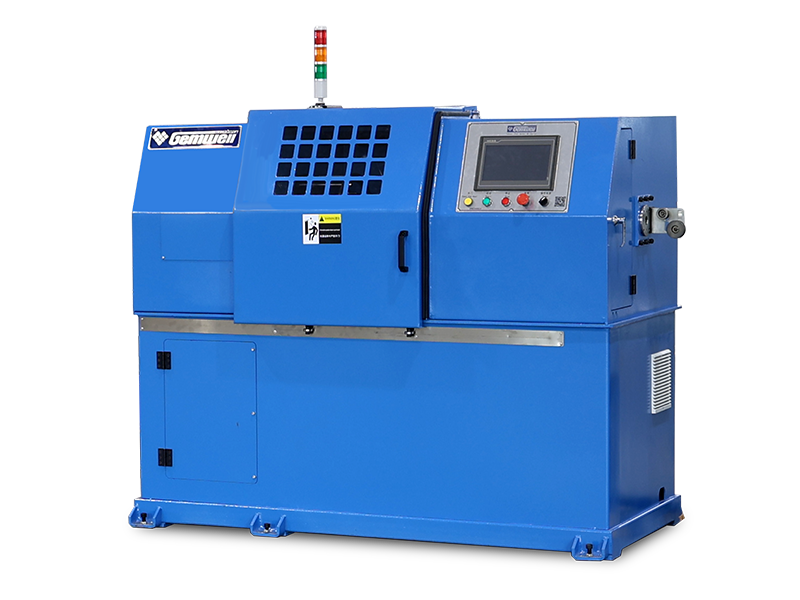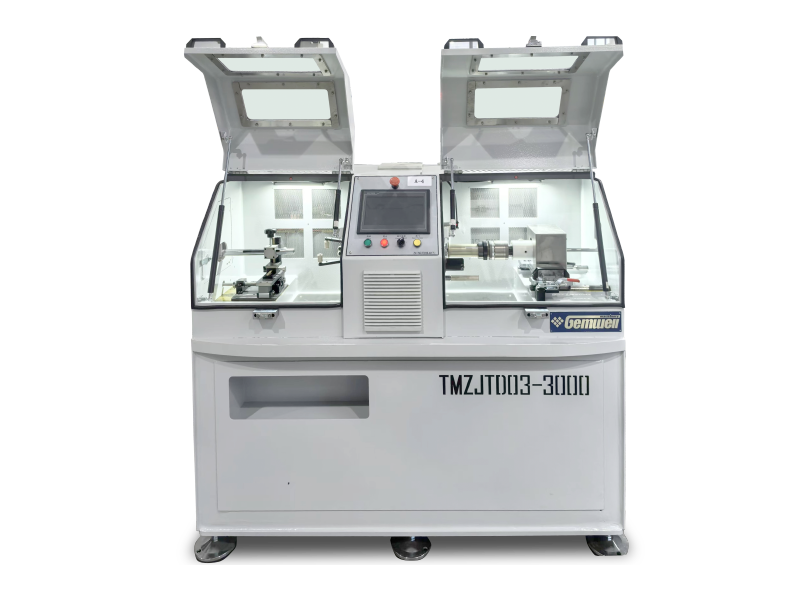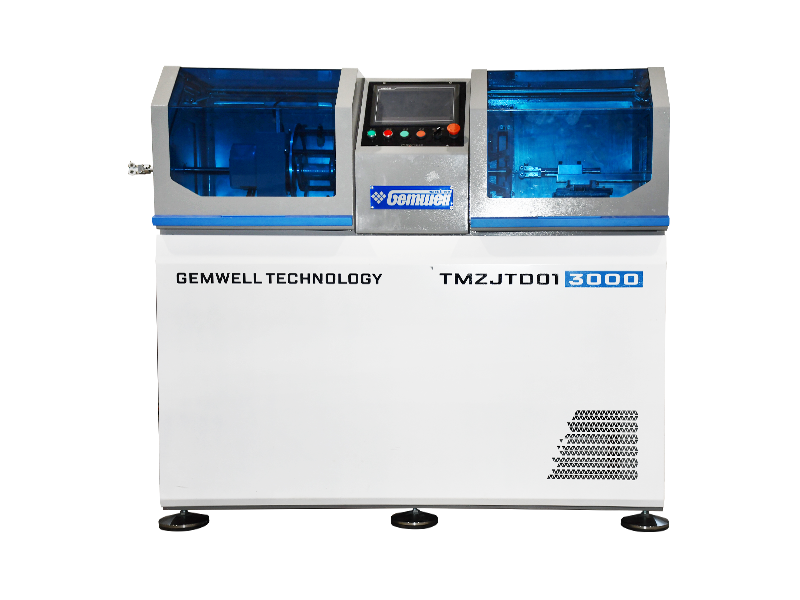Here are notable recent innovations in cable extrusion machine technology, reflecting current industry advancements:
1.Energy & Resource Efficiency
High-Efficiency Drive Systems — Modern AC drives and servo motors cut power consumption by optimizing torque and speed.
Waste-Reduction Designs — Precision control minimizes material overuse; scrap recycling systems reuse trimmed edges.
Eco-Friendly Heating — Electromagnetic induction heaters replace conventional bands for faster, targeted heating.
2.Precision & Quality Control
Laser Gauging Systems — Non-contact lasers scan coating thickness in real-time, auto-adjusting die positions.
Inline X-Ray Inspection X-Ray Inspection — Detects voids, contaminants, or uneven layers without halting production.
Melt Pressure Sensors — Monitor viscosity variations to maintain consistent material flow.
3.Automation & Connectivity
Integrated IoT Platforms — Machines relay performance data to central dashboards for predictive maintenance.
Adaptive Process Control — Algorithms auto-correct parameters (temperature, speed) based on material batch variations.
Remote Diagnostics — Technicians troubleshoot issues via augmented reality (AR) interfaces.
4.Material Advancements
Multi-Layer Co-Extrusion — Simultaneously applies ≥3 layers (e.g., insulation, shielding, jacket) in one pass.
Low-Temperature Processing — Specialized screws process heat-sensitive materials (e.g., bio-polymers) without degradation.
Rapid Material Switching- Rapid Material Switching — Clean-purge systems reduce transition time between polymer types by >50%.
5.Specialized Applications
High-Speed Fiber Optic Coating Fiber Optic Coating — Ultra-precise dies apply micron-thick buffers on delicate glass fibers at 2000+ m/min.
Superconductive Cable Tooling — Extruders handle cryogenic materials for energy transmission cables.
On-Demand Color Systems — Dynamic pigment injectors apply custom color stripes without stopping production.
6.Sustainability Focus
Bio-Based Polymer Compatibility — Modified screws/barrels process plant-derived plastics prone to thermal process plant-derived plastics prone to thermal instability.
Volatile Organic Compound (VOC) Capture — Integrated exhaust systems trap emissions during extrusion.
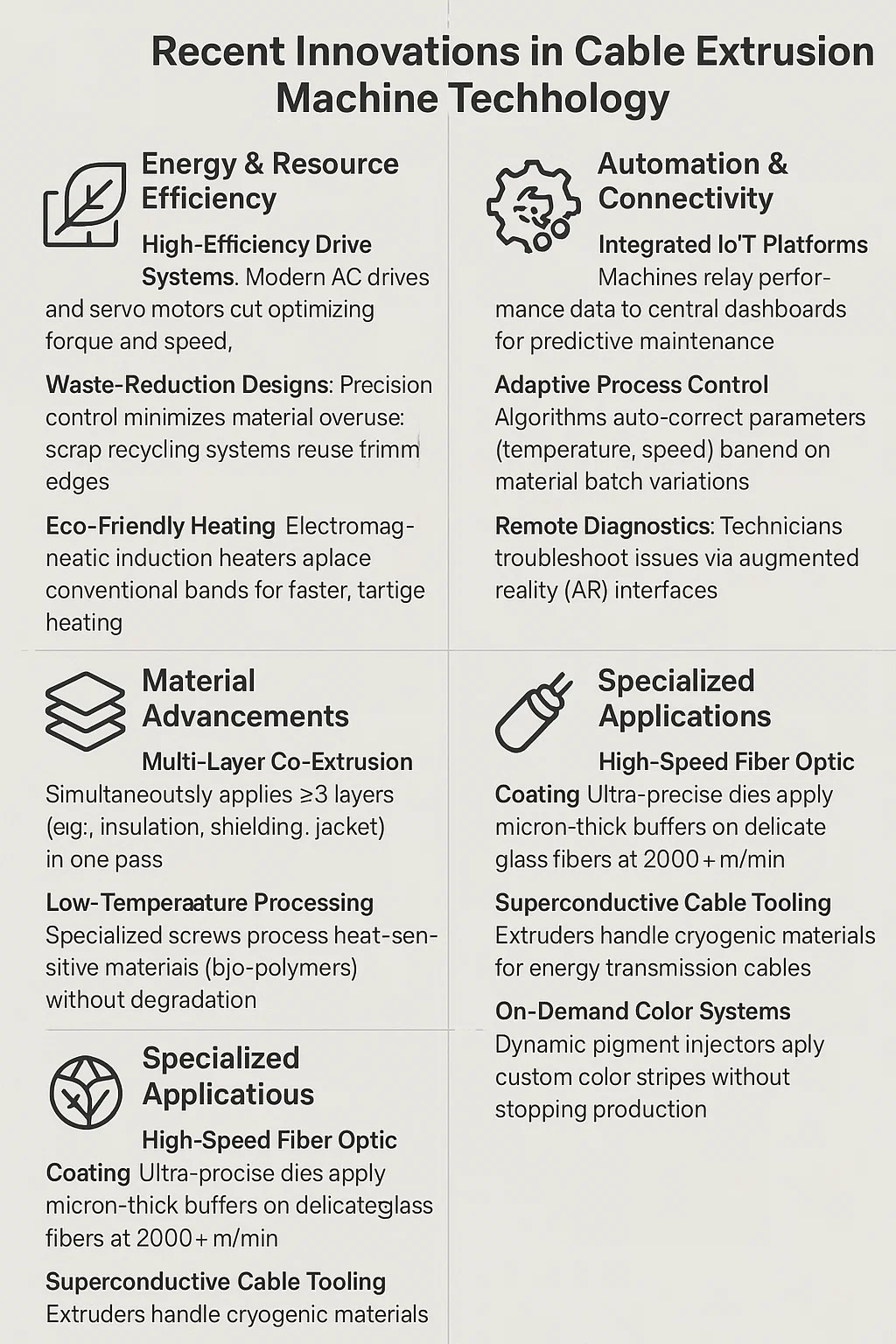
 E-mail: info@gem-cablesolution.com
E-mail: info@gem-cablesolution.com Address: No.8 Yuefeng Rd, High Tech Zone, Dongtai, Jiangsu, China | No.109 Qilin East Rd, Daning, Humen, Dongguan, Guangdong, China.
Address: No.8 Yuefeng Rd, High Tech Zone, Dongtai, Jiangsu, China | No.109 Qilin East Rd, Daning, Humen, Dongguan, Guangdong, China. English
English  English
English русский
русский 日本語
日本語 Español
Español عربى
عربى 中文简体
中文简体


 Related Products
Related Products